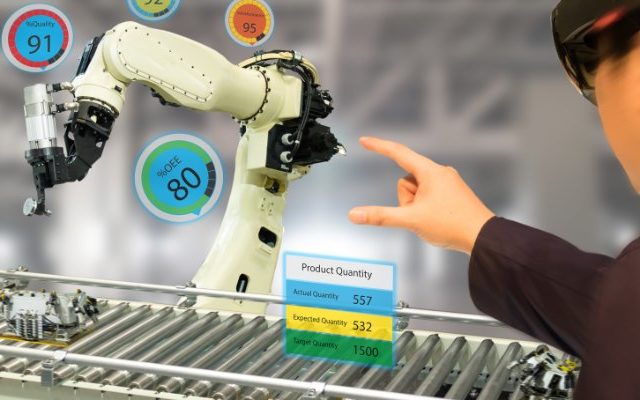The tide seems to be turning when it comes to opinion on whether robots and automation will replace humans in the workplace. Last week’s blog covered findings from Infosys that showed artificial intelligence (AI) is actually a driver for investing in people. A new study published by software company, Pegasystems, predicts that pairing humans alongside machine intelligence will create more effective, engaged and meritocratic workforces.
The Future of Work report surveyed 845 senior executives working globally across key industry sectors, including financial services, insurance, manufacturing, retail, telecommunications and media, and government, on the increased role AI and robotic automation will play in the workplace of the future.
The survey reveals widespread belief that machine intelligence will work ubiquitously alongside humans over time and seven in 10 respondents (69 per cent) reckon the term ‘workforce’ will evolve to encapsulate both humans and machine intelligence. They also expect “AI-augmented employees” to generate tangible business returns such as more efficiency (73 per cent agree) and better customer service (62 per cent).
Responses suggest, though, that the effect of AI will not only transform the way people work but how they are managed and rewarded. More than three-quarters (78 per cent) believe AI and robotic automation will allow staff to make more informed decisions and lead to a flattening of traditional management hierarchies while a similar number (77 per cent) expect AI to help suggest “next best actions” for most customer service agents within the next five years.
The vast majority (88 per cent) are comfortable working together with machines but are less keen on being managed by them. Four out of five (79 per cent) respondents say they would not be comfortable with an AI-powered boss.
Unbiased machine intelligence could also help organisations in areas such as ensuring equal pay. Two thirds (66 per cent) believe the widespread use of AI will give rise to a more transparent meritocracy in the workplace. Three quarters (74 per cent) think that within 10 years, AI will become standard practice for evaluating employee performance, while 72 per cent predict it will be commonly used to set appropriate rewards and compensation. More than four fifths (84 per cent) agree it will be commonplace for AI to calculate the true value added by each worker within a decade, while 44 per cent see this happening within five years.
Don Schuerman, chief technology officer and vice president, product marketing, Pegasystems, reckons that the potential of AI and automation has so far being largely untapped and that organisations must augment their human intelligence with AI across the entire organisation in order to move beyond basic efficiency improvements. “By deploying AI and automation with an end-to-end view in mind, businesses can move closer to fulfilling their customer centric vision,” he says.
This also chimes with some of the discussion at January’s World Economic Forum annual meeting where AI was frequently a topic for discussion. At the launch of a skills initiative there, Bill McDermott, chief executive officer of SAP, added that there are “exciting possibilities” when people and machines work together and pointed towards “a new frontier of augmented humanity”.
There are many challenges ahead when it comes to embedding AI and robotics into the workforce and we must be respectful of the defensive feelings some employees are likely to have. But it does seem it is no longer a case of “man versus machine” but “man and machine” and together we can be a powerful combo.
Article by channel:
Everything you need to know about Digital Transformation
The best articles, news and events direct to your inbox
Read more articles tagged: Featured, Future of Work







